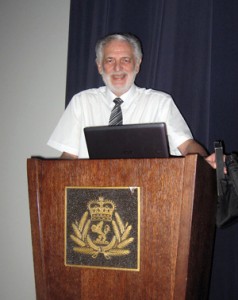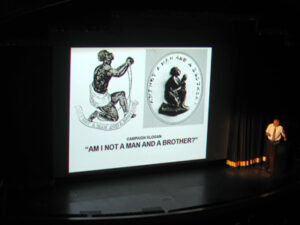Von Johanna Renate Wöhlke
An Bord des Cunard Schiffes „Queen Elizabeth“ gab es auf einer Teilstrecke seiner Weltreise 2014 mehr zu erleben als Meer und Wellen, Sonne und Wind, Essen und Trinken, Lesen und Träumen, Tanz und Unterhaltung.
Zwischen New York und San Francisco – und der von allen Passagieren mit großer Spannung erwarteten Panama-Kanal-Passage, schenkten die Passagiere im jeweils voll besetzten Theater des Schiffes, dem „Royal Court Theatre“, einem Wissenschaftler ihre Aufmerksamkeit: Professor Derek Fraser. Derek Fraser war bis 2003 „Vice-Chancellor and Chief Executive of the University of Teesside“ in Middlesbrough in Nordost England.
Der Historiker hielt eine Serie von sieben Vorträgen unter dem Leitgedanken „Those who changed their worlds“, frei übersetzt „Von denen, die ihre Welt verändert haben“. In einem davon brachte Derek Fraser seinem Publikum ein bedrückendes Thema auf eindringliche Weise durch Fakten und Bilder nahe: die Entwicklung der Sklaverei und ihre Abschaffung im Britischen Empire, geführt und erstritten unter der Ägide von William Wilberforce. View full article »
haben“. In einem davon brachte Derek Fraser seinem Publikum ein bedrückendes Thema auf eindringliche Weise durch Fakten und Bilder nahe: die Entwicklung der Sklaverei und ihre Abschaffung im Britischen Empire, geführt und erstritten unter der Ägide von William Wilberforce. View full article »


